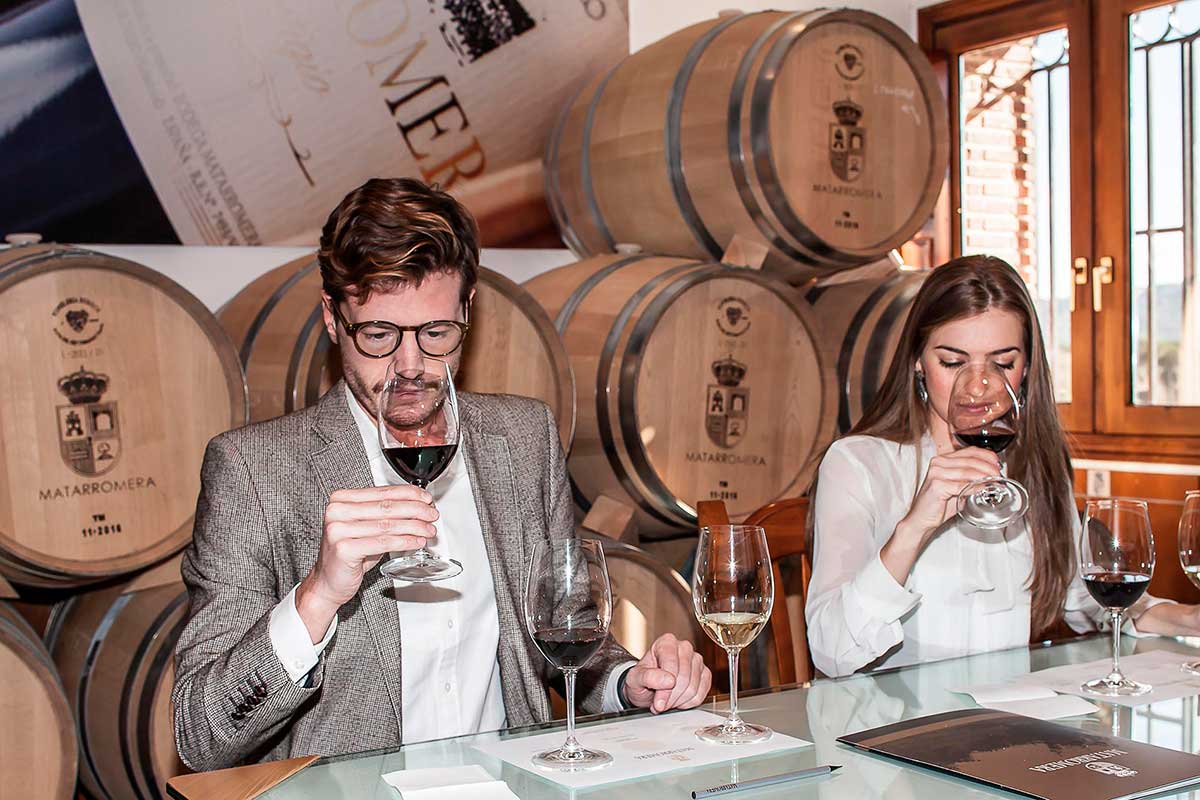
Clove, banana and raspberry. You can’t go wrong with these wine flavours because, according to a study led by Bodegas Familiares Matarromera, the research company Laffort and the French biotechnology firm BioLaffort, they trigger positive emotions such as joy, satisfaction and relaxation.
In keeping with their innovative spirit and their commitment to research, a few months ago these companies proposed the idea of linking consumer emotions to the sensory characteristics of wine. The challenge was to determine which wines evoked a feeling of happiness and why. 20 different flavours were presented: violet, clove, pepper, liquorice, lemon, blackberry, raspberry, strawberry, blackcurrant, peach, apple, pineapple, banana, tea, nut, vanilla, coffee, butter and mushroom.
The study provided some very interesting data for a market that is becoming increasingly demanding and competitive. Aromas such as coffee or vanilla appear to be associated with concepts such as fun or fortune.
The ultimate objective of the project, recently presented at the Basque Culinary Center, was to determine patterns of wine preference in young people. To achieve this, a target group of 90 Spanish consumers was selected, between the ages of 18 and 40. Almost 58% of the group were women with a university education. The majority of those surveyed were frequent wine drinkers, as four out of ten said they consumed wine at least two to three times a week. In terms of the occasions when they would consume wine, the answers varied from “going out to lunch”, “dining out”, “in bars” or “when I have guests at home”.
In total, 12 young wines proposed by Laffort were involved in the study, including some of the benchmark products from Bodegas Familiares Matarromera. The sensorial characteristics of these wines were determined by a panel of 12 judges trained in aromas, flavours, mouthfeel, etc. Its members came from the Technical College of Agricultural and Food Engineering and Biosystems from the Polytechnic University of Madrid.
SUSTAINABILITY, A FUNDAMENTAL PILLAR
The project also aimed to delve deeper into the product attributes that were most relevant to consumers. It was thus concluded that, when consumers buy wine, the flavour, aroma and price is more decisive than other factors, such as alcohol content or any awards that the wine may have received.
With regard to the evaluation of sensory attributes, today’s young people like wine that is fruity, easy to drink, silky on the palate, balanced, fresh and that has complex flavours.
It is ultimately an analysis of current consumer tastes that may well change in the future. However, Bodegas Familiares Matarromera remains committed to research at all times.
Sustainability is another of its fundamental pillars. In accordance with this, the company continues to meet the objectives set out in its plan ‘Sustainable Matarromera on Planet Earth: 2030 Goal’. This document is structured around ten fundamental principles: the design of sustainable facilities; energy efficiency through the use of renewable energies; a plan to reduce emissions and carbon footprint; reducing their agricultural and winery water footprint; a waste minimisation plan; a spherical economy and reuse of by-products; the use of light packaging and packaging with a lower environmental impact; sustainable agriculture and production; environmental R&D projects and environmental awareness.
SUSTAINABLE IRRIGATION
Bodegas Familiares Matarromera is a leader within its industry on the use of renewable energies, which are an important contribution towards respect for the environment and are the fundamental source of energy to the production centres. As such, photovoltaic power stations have been made available in all production centres. Therefore, in estates such as Valdecobo, which has 76 hectares of arbequina, picual and arbosana olive trees, or Villalba de Adaja, with its 99 hectares of vineyards and olive groves, we make sure that sustainable irrigation is used. These are isolated facilities, so they are only supplied by photovoltaic solar energy. It is estimated that the company uses sustainable irrigation on more than 150 hectares, generating a saving of about 25,000 litres of diesel for irrigation and, most importantly, preventing the emission of more than 60 tonnes of CO2.